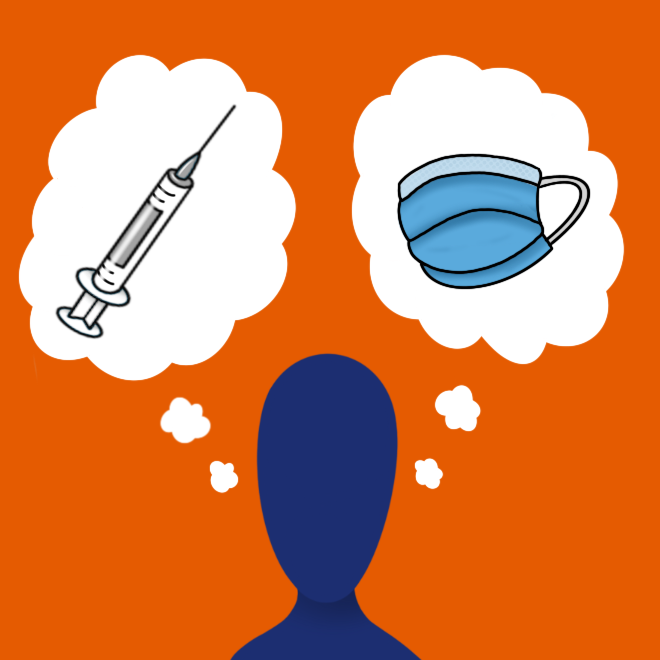Prepare for flu-season amidst pandemic
Oct 12, 2020
After months of living with the looming presence of COVID-19, these next winter months pose an additional threat to public health: influenza. Students and faculty wear masks, sanitize and receive twice-weekly testing to prevent the contraction and spread of the virus. However, some have said the winter of 2020 may change the conditions under which people practice preventative care given the possibilities of the cold and flu. As the flu and coronavirus seasons intersect, students may be left wondering how they will manage to stay healthy.
Lowa Mwilambwe, associate vice chancellor for auxiliary, health & wellbeing, finds it is normal for people to spend more time indoors during the winter months, which can contribute to the spread of both viruses. He explained that with more traffic passing through the same spaces, there is a greater opportunity for germs to build up, and the poor air circulation could potentially facilitate a higher concentration of both the flu and coronavirus.
The flu season also poses difficulties for medical professionals like Dr. Robert Woodward, medical director of McKinley Health Center.
“This makes it harder for a medical provider to make a definitive diagnosis of what virus is causing the symptoms, even if a lot of the treatments are the same,” Woodward said in an email. “I really worry that if students are not careful and diligent, some people may get both at the same time, which could be very serious.”
Although COVID-19 symptoms appear to be less aggressive in young adults, many flu symptoms are typically more noticeable and could potentially make it difficult to function normally. The severity of symptoms is a possible indicator between the two viruses.
Get The Daily Illini in your inbox!
In his email, Dr. Woodward suggests following basic COVID-19 precautions in order to avoid contracting either illness during the upcoming flu season such as wearing a mask, using hand sanitizer, washing hands regularly and social distancing. If an individual is experiencing flu symptoms such as fever and cough, he recommends staying home until the fever has passed.
These preventative actions have remained the same throughout the course of the pandemic and should continue to be practiced daily, if not even more intensely. However, there is one measure of prevention that’s importance has been heavily emphasized by medical professionals and doctors across campus. Dr. Robert Parker, director of McKinley Health Center, stresses the importance of the flu vaccine.
“We would love to have everybody to have the flu shot by the end of October,” Parker said. It takes about two weeks after you get the flu shot for your body to build up the immunity it needs to protect you from the flu.”
The vaccine works in many ways to alleviate the impending stress of flu season for students, faculty and medical staff.
The vaccine decreases the likelihood that students and staff contract and spread the flu which would aid medical professionals in the Champaign-Urbana area in differentiating between a COVID-19 and flu diagnosis. Students can find more information about vaccination sites on McKinley’s website.
Many individuals refuse to receive the vaccine, believing that it may produce the flu or flu-like symptoms. However, Parker highlighted that the vaccine given at the University is an inactive vaccine that contains flu particles, rather than an active strain.
“You can get a little bit of a low-grade fever from the vaccine, a sore arm or maybe even a headache and sore throat that might last 24 hours,” Parker said, “But it really pales in comparison to the flu.”
Parker also indicated that although the vaccine is not always 100% effective in preventing the flu for an individual, it can still function to help others.
“Because you still see the flu in people that vaccinate,” he said. But if you’re going to see it, it tends to be a much milder illness, you don’t have nearly as much of a viral load, and therefore, you’re not as infectious as you would be had you not received the vaccine.”
In his email, Woodward defines this as herd protection. This means that if everyone received a flu shot, anyone who contracted the flu would find it difficult to spread to friends, family, classmates and the rest of the community.
Although this winter season will be like no other, following general COVID-19 guidelines, in addition to the flu vaccine, will be key players in the safety of students and staff. Overall, the goal is to practice prevention, keep thoughts positive and tests negative.






